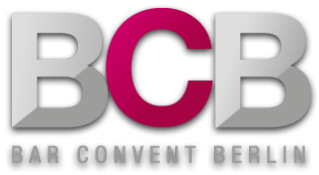Full Focus: What moves your Bar forward?
© Shutterstock
Bar ohne Namen
Entschlossen verweigert sich Savage, der Bar einen Namen zu geben. Stattdessen sind drei klassische Design-Symbole das Logo der Trinkstätte in Dalston: ein gelbes Quadrat, ein rotes Viereck, ein blauer Kreis. Am meisten wurmt den sympathischen Franzosen dabei, dass es kein Gelbes-Dreieck-Emoji gibt. Das erschwert auf komische Weise die Kommunikation. Der Instagram Account lautet: a_bar_with_shapes-for_a_name und anderenorts tauchen die Begriffe ‘Savage Bar’ oder eben ‚Bauhaus Bar‘ auf.
Für den BCB bringt Savage nun sein Barkonzept mit und mixt für uns mit Unterstützung von Russian Standard Vodka an der perfekten Bar dazu.
In a recent interview with some of the richest and most successful people in the world, most of them answered the question about the key to their success with the same word: focus. The ability to focus one's attention on what is really important and to stay focused despite all the external noise around you. This focus is becoming an increasingly important, but at the same time increasingly difficult skill to master in the business world as well as in all of our lives.
Urgent or important?
In our industry, there is a lot of movement and tasks that are classified as "urgent" or "important". In the real world, the urgent usually always wins and the important is often pushed back or forgotten. Unless you create systems to prevent that from happening. The difference between the important and the urgent can be huge. Urgent to do's are always focused on the present moment: They need to be done immediately and if they are not done, there are immediate consequences. Important to do's, on the other hand, belong to the long-term goals and are of strategic value.
Identify To Do's
While urgent matters are easy to identify – from the need to replace a light bulb or an employee to putting out a fire or ejecting a drunk patron – important matters tend to be less noticeable or purely data-driven and therefore require other ways to keep on top of them. With the increasing use of technology inside and outside bars (such as cash register and reservation systems, as well as social media and review portals), we have access to a huge amount of data that can transform a business and set it up ideally for future success. And what's one solution to both keep track of and focus on what's important? – A dashboard.
Everything at a glance
A well-established and maintained dashboard is a critical factor in most organizations, encompassing multiple strategic tools and ideas. Dashboards are everywhere. If you think about it, we are confronted with dashboards every day: From the dashboard in your car to the fitness activity overview on your iPhone. When understood and carefully chosen, they can make our business and everyday activities more efficient. As well as the information management such as questions about spend per head, wage costs or staff hours. Dashboards can bring together all stakeholders and associated metrics in one place to answer these questions and identify areas for improvement.
Dashboard: What questions should be considered?
1. Who is the dashboard for? Certainly, there should be public dashboards for all to see, but individual managers or staff can be assigned a dashboard to focus their attention and create accountability.
2. How many metrics should be included? Think of the car analogy: fewer than five metrics seems to be the norm that can be managed efficiently (i.e. how long does it take to create them and how long to read them).
3. What format should be used? It is good to show past and current movements, so charts are better than figures or raw data. Finally, the timeframe should be determined and again, for certain metrics, weekly, monthly or quarterly dashboards can be useful.
The benefits of "data democracy”
Using a dashboard to measure the data that matters to your business brings immediate benefits. Firstly, by practicing 'data democracy' and sharing the business-critical data with your team, you increase employee engagement, can make successes visible and create a clear rationale for business decisions. Secondly, visibility and accountability for the numbers captured will improve the attention and effectiveness of your management team. Finally, by creating metrics, you can clearly see whether your efforts are working ("It's working, so let's do it again") or not ("We tried this approach and it didn't work, so let's try something else").
The quest for improved processes
A typical hospitality manager is rarely an MBA graduate and often gets promoted because he or she can stay (mostly) sober at work, but the job is getting harder – especially as the economic headwinds we face create new pressures. By striving to optimize our business intelligence, we can strive to improve ourselves both individually and collectively. Dashboard tools help make this striving more focused. While we will probably never be among the richest people in the world, we can at least be inspired by their methods.
